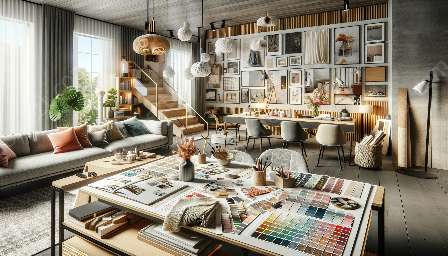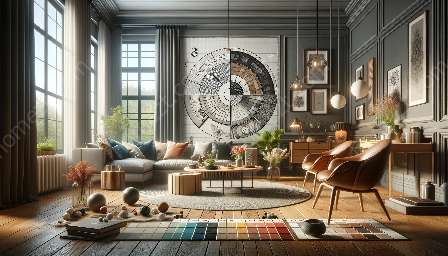Interior design plays a crucial role in shaping the way people experience and interact with their living spaces. From the layout of furniture to the selection of color schemes, every decision made by an interior designer has the potential to influence the well-being and satisfaction of the occupants. However, alongside the creative and technical aspects of interior design, ethical considerations also come into play.
The Role of Ethics in Interior Design
When it comes to the built environment, ethical interior design practices encompass a wide range of issues, including sustainability, social responsibility, and fair trade. For example, designers may need to consider the environmental impact of their material choices, the welfare of workers involved in the production of furnishings, and the overall impact of the design on the community and society.
One of the key ethical dilemmas in interior design lies in the balance between creating aesthetically pleasing spaces and ensuring that they are functional, safe, and sustainable. Designers often face the challenge of meeting both their clients' aesthetic desires and the ethical imperatives of responsible design. This requires a thoughtful and informed approach that takes into account the long-term consequences of design decisions.
Implications for the Home Furnishings Industry
The choices made by interior designers have a direct impact on the home furnishings industry. Designers have the power to influence consumer trends and preferences, shaping the demand for sustainable, ethically produced furnishings. As a result, ethical considerations in interior design can drive positive change throughout the home furnishings supply chain, from manufacturers to retailers and consumers.
Furthermore, ethical interior design practices can lead to the creation of healthier, more inclusive living spaces. By considering the needs of diverse populations and promoting accessibility and inclusivity, designers can contribute to the development of environments that are welcoming and functional for all individuals.
Challenges and Opportunities
While integrating ethics into interior design presents challenges, it also offers opportunities for innovation and creativity. Designers can explore sustainable materials, incorporate principles of universal design, and engage in community-oriented design projects that address social issues. By embracing ethical values, designers can differentiate themselves in the industry and attract clients who prioritize responsible and mindful design.
Consumer Choices
As awareness of ethical issues grows, consumers are becoming more conscious of the impact of their purchasing decisions. Ethically minded consumers seek out products and services that align with their values, and this has significant implications for the interior design and home furnishings sectors. Designers who prioritize ethical considerations can cater to this burgeoning market and contribute to the promotion of socially and environmentally responsible practices.
In conclusion, ethics in interior design is an essential aspect of creating harmonious, sustainable, and socially responsible living spaces. By considering the ethical implications of their choices, interior designers can shape a better future for both their clients and the broader community. Through conscious decision-making and a commitment to ethical design principles, designers can contribute to a more inclusive, equitable, and environmentally friendly built environment.








